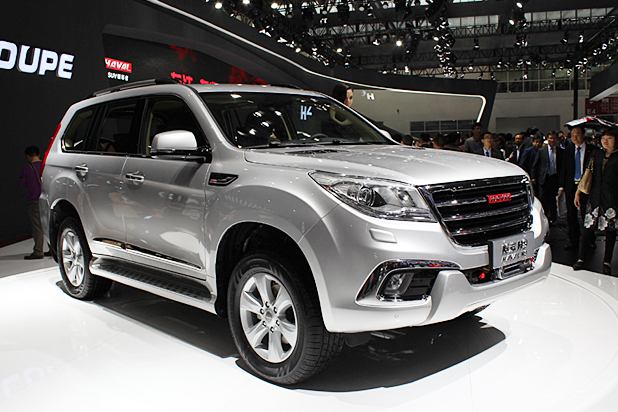The rise of domestic consumption is the bedrock of the investment case for China. As overall Chinese economic growth slows after years of rapid investment-led growth, consumers enjoying the benefits of compounding mid-teen income growth will become more and more important to the economy. Many investors believe that western multinational companies are the best way to tap these new consumers. We have sympathy with this view and recognise that some companies like Yum! Brands, which own fast food chain KFC, are well positioned. Yet we believe that investors are missing a huge opportunity to tap into local companies that really understand the dynamic, and often regional, consumer tastes. These strong brands often have superior long-established deep distribution networks that give them an enduring competitive advantage over foreign brands.
One example of a successful privately-owned home grown brand is the Great Wall Motor company. Coming from Baoding in Hebei Province, it has emerged as China’s leading sport utility vehicle (SUV) brand. Just as in the west, rising incomes lead consumers to want larger cars, so SUV sales have jumped from an annualised rate of 1m units in 2010 to over 3m in 2013. As the industry leader, Great Wall Motor has delivered strong growth in the expanding market as well as a strong five-year run for the stock. However, in the last six months the company has hit growing pains. Profit margins have fallen while research and development is stepped up, and the new H8 model launch was delayed. These hiccups have caused investor sentiment towards the stock to cool dramatically. Valuations are back to attractive levels for a strong brand, with proven home grown management, which is well positioned for a multi-year trend of growing SUV popularity.
Few Chinese companies have successfully taken their brands global, but PC and notebook company Lenovo has achieved this milestone. Lenovo has used a leading brand at home to generate strong cash flows to invest in savvy acquisitions of foreign brands, which combined with efficient manufacturing, has allowed it to consistently take market share in the global PC market. More recently Lenovo has developed the technology to benefit from the growth of smartphones in China. Furthermore, the new Yoga ultrabook has received good reviews, which makes Lenovo a competitor in the global tablet market. In 2014 the company has been busy announcing sizable merger and acquisition (M&A) deals to buy IBM’s server business and Motorola from Google. Given Lenovo’s excellent track record of integrating businesses we believe the company is now even better positioned to grow in China and abroad as a genuine technology brand.
The reform measures announced at the November 2013 Communist Party Plenum are a major change in philosophy for directing the economy. President Xi has embarked on an anti-corruption crackdown that has seen lavish government spending budgets dramatically cut and is now turning his attention to the waste and inefficiencies in state controlled businesses (SOEs). We are starting to see monolithic SOEs in the energy and telecom sectors cutting capital expenditure budgets and raising dividend payout ratios. In addition to shaking up SOEs, President Xi is introducing more market forces into the economy including the liberalisation of interest rates and financial markets. Private investors in the UK cannot access the local A share markets in Shanghai and Shenzhen, but they can buy shares in Citic Securities, which is China’s largest stockbroker. The company is also listed in Hong Kong, and stands to benefit from financial reforms and any pick up in sentiment in the local market
Opinion column by Charlie Awdry, portfolio manager of Henderson Global Investors’ China Opportunities strategy

